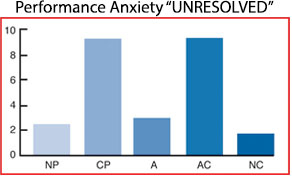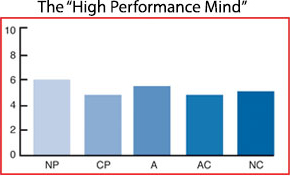Resolving Performance Anxiety
Make “Friends” with Adrenaline
Channel Anxiety into high performance
Listen to our essential, one-of-a-kind, FREE library of clinical interviews which demonstrate life changing success since 1978.
- Fear of being noticeably nervous
- Public speaking anxiety
- Obsessed about recurring panic
- Toxic Perfectionism
- Avoidant behavior
A solution is here. Treatment Available Worldwide.

Social anxiety is based on performance. The dynamic of “performance” is what distinguishes social anxiety from other anxiety disorders. Performance anxiety is co-morbid with other anxiety syndromes, especially Obsessive Compulsive Personality Disorder and Obsessive Compulsive Disorder. In his article “Obsessive Compulsive Personality Disorder as Etiology for Performance Anxiety,” Jonathan Berent describes how perfectionism drives performance and social anxiety.
Work Makes Me Nervous is the state of the art and science self -help program for performance anxiety at work.
An important example of the pervasiveness of performance anxiety that our technological society is breeding is selective mutism. Selective mutism is in essence a speaking phobia and a symptom of the obsessive-compulsive mind. A commonly cited statistic is that approximately one out of one thousand children has selective mutism. In addition, countless adolescents and adults experience variations of selective mutism. In fact, many adults who have initiated treatment for public speaking anxiety at Berent Associates self-identify with selective mutism. Therefore, the reality is that the statistics are not in yet as to how pervasive selective mutism and verbal performance anxiety and phobia truly are.



Think you may have social anxiety?
-
Clinical Interviews on
Performance Anxiety
The Most Evidence Based Clinical Success for Social Anxiety Since 1978
Treatment Available Worldwide
- Ask Jonathan
- Self Help Programs
-
“Warm Hands Cool Face” A Self-Help Clinical Program for Blushing Anxiety & Erythrophobia
$57.00 – $75.00Price range: $57.00 through $75.00
-
Bio-card
$1.00
-
Work Makes Me Nervous
$24.95
Helpful Articles on Performance Anxiety
Social-Anxiety.com
It’s a secret shame, a “personal failure” C-suite executives seldom acknowledge: performance anxiety so crippling that they fantasize about an escape—changing careers,
Millions Experience Public Speaking Anxiety In the Form of Erythrophobia, Hyper-hidrosis and Voice Paralysis Jonathan Berent, L.C.S.W., pioneering therapist and author, offers a new and continually growing library of unique
Since 1978 The Berent Treatment Method has adapted therapy to the specific needs of social anxiety sufferers rather than try to fit the disorder into the narrow confines of an
The Perfect Storm of Anxiety Builds Momentum in the Educational System Although anxiety disorders are the most common mental illnesses in the United States most suffers do not receive help.
By Kyli Rodriguez-Cayro Panic attacks can throw you for a loop (quite literally — they can make you dizzy), especially if you feel one coming on at school, at work,
Here’s an important tip for anyone considering entering treatment for social anxiety: A tremendous cliché related to treatment is the over-used reference to cognitive behavioral therapy. Cognition is thinking. Obviously
Credit: http://www.social-anxiety.com / SocialAnxiety.com Written by: Jonathan Berent, L.C.S.W., A.C.S.W. Published by: SocialAnxiety.com on 12/20/2015 Unlike the similarly named Obsessive Compulsive Disorder, Obsessive Compulsive Personality Disorder (OCPD) seldom receives research interest except in studies examining several of






